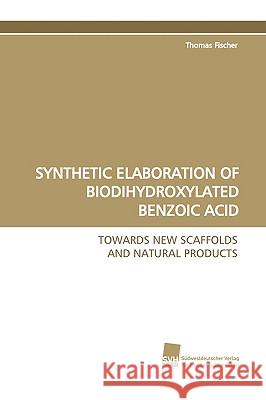Synthetic Elaboration of Biodihydroxylated Benzoic Acid » książka
Synthetic Elaboration of Biodihydroxylated Benzoic Acid
ISBN-13: 9783838106229 / Angielski / Miękka / 2009 / 200 str.
Many of the disadvantages of common oxidation reagents can be circumvented by using enzyme- mediated oxidation reactions which additionally offer highly diverse possibilities for novel function introduction via chiral catalysis as well as for the modification of existing functional groups. The enantiospecific enzymatic 1,2-dihydroxylation of sodium benzoate represents a powerful methodology to obtain a very interesting synthon for organic synthesis due to the fact that this transformation cannot be achieved with classical oxidation reagents, in particular in asymmetric mode. Application of the dihydroxylated sodium benzoate to organic synthesis is outlined towards various hetero and carbo bicyclic compounds obtained from intramolecular Diels-Alder cyclization reactions which would lead to synthetic scaffolds as structural analogs of the natural product penicillone A. Uvarirufol A, a polyoxygenated cyclohexen natural product, which was first isolated from Uvaria rufa, was attempted to be synthesized for the first time using 1,2-dihydroxylated sodium benzoate as starting material.











